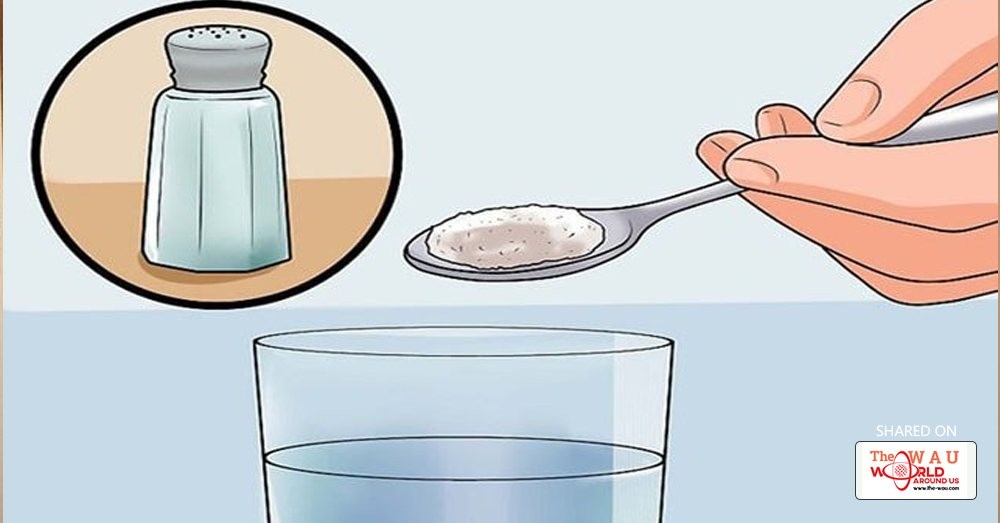A sore throat is not a seasonal complaint and you can get one at just about any time of the year, especially when there’s a change in seasons. A sore throat can be caused by any one of a large number of bacteria and viruses and so there’s not much that you can do to prevent it. Although our mums swear by salt water gargles to treat a sore throat, we dismiss it as an “old-fashioned” remedy. However, recent studies show that a salt water gargle for a sore throat might be a lot more effective than we realized.
How Salt Water Gargles Can Treat A Sore Throat
According to experts, the ideal salt water gargle should contain ½ a teaspoon of salt dissolved in a glass of warm (not hot) water. Take a swig of this warm water and allow it to reach the back of your throat before you start gargling; then spit the water out. Here’s the science behind the effectiveness of salt water gargles for a sore throat.
Prevents Upper Respiratory Tract Infections
“Gargling 3 times a day with salt water is linked to a 40% decrease in upper respiratory tract infections”
A recent study shows that a salt water gargle will help to reduce the symptoms of a sore throat as well as prevent upper respiratory tract infections. Gargling 3 times a day with salt water is linked to a 40% decrease in upper respiratory tract infections. A salt water gargle can also help to get rid of a common cold, help to reduce sinusitis or tonsillitis infections, as well as reduce any inflammation of the lymph nodes.
Reduces The Severity Of The Infection
“Salt has mild antiseptic properties and a salt water gargle will help to expel mucus that contains pathogens responsible for the infection”
Salt has mild antiseptic properties and so a salt water gargle will help to reduce the severity of the infection. Furthermore, a salt water gargle also helps to flush the throat and allows you to expel excess mucus build-up. This mucus contains the bacteria or viruses responsible for your throat infection and so lowering their numbers will make it that much easier for your body to fight off the infection.
Relieves Soreness
“A warm salt water gargle soothes the inflamed mucus membranes of your throat and prevents further thickening of phlegm”
When you have a sore throat, it may hurt when you swallow and your throat will feel scratchy. Your phlegm can become thick which will cause congestion and increase your coughing bouts which in turn will aggravate your sore throat. Experts say that the best way to soothe a sore throat is to keep it moist. A warm salt water gargle will soothe the delicate mucus membranes of your throat as well as prevent the thickening of phlegm so that it can be easily expelled.
What Else Can You Do For A Sore Throat?
In addition to a salt water gargle, there are several other ways to ease the pain of a sore throat. High humidity levels will prevent your mucus membranes from drying out and this will help to ease an aching sore throat. You can simply switch on your geyser and fill a bucket with hot water and sit there breathing in the steam. Another simple way to treat a sore throat is to consume a spoonful or two of honey, as honey has antimicrobial activity and may suppress a cough.
Salt water gargling is a very effective way to reduce a sore throat, but make sure that you are careful about the temperature, as well as the amount of salt you use to make the solution. Water that is too hot or contains too much salt will only irritate the already-inflamed lining of your throat, exacerbating the sore throat pain. If your sore throat persists or if you have a fever, contact your doctor as you might be suffering from a viral fever or a cold. Just make sure to avoid taking antibiotics without first consulting your doctor, as this could result in bacteria becoming antibiotic resistant. Stay safe and stay healthy!
Share This Post















